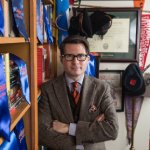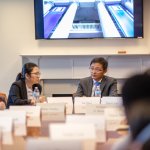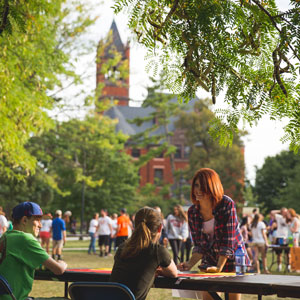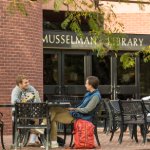
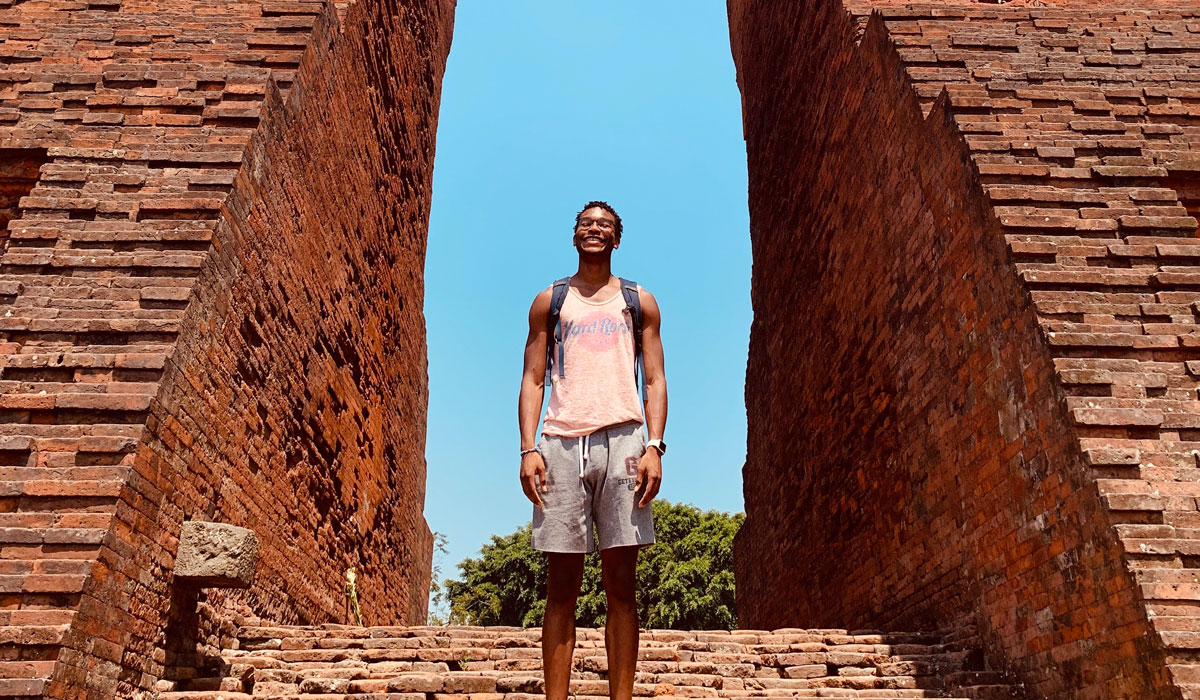
Gettysburg College offers experiences that require courage to open minds to new ideas, challenging previously held beliefs and perspectives. One way students can engage in diverse perspectives is to immerse themselves in new environments, including those in other countries.
Churon T. Lanier-Martin ’20, a first-generation college student from Chester, Pa., considers the opportunity to study abroad through Gettysburg’s Center for Global Education an invaluable part of his college experience. To expand his worldview, he traveled to Indonesia for a semester.
“I personally come from poverty, by the American standard, and I wanted to see how a country on the other side of the world [faces] issues, especially with the subjugation of vulnerable groups through historical disenfranchisement,” he said.
Lanier-Martin traveled across the world to have hands-on experiences while studying Indonesian art, religion, and social change. Not only did he glean a new sense of the world, he also paid attention to the systemic effects on those in a poverty-stricken area.
“While living with several Indonesian families, I was able to see the ways attitude and perspective shapes one’s lived experiences, regardless of socioeconomic status,” he said. “It is a two-sided coin, but some of the things denied to impoverished people are unjustifiable.”
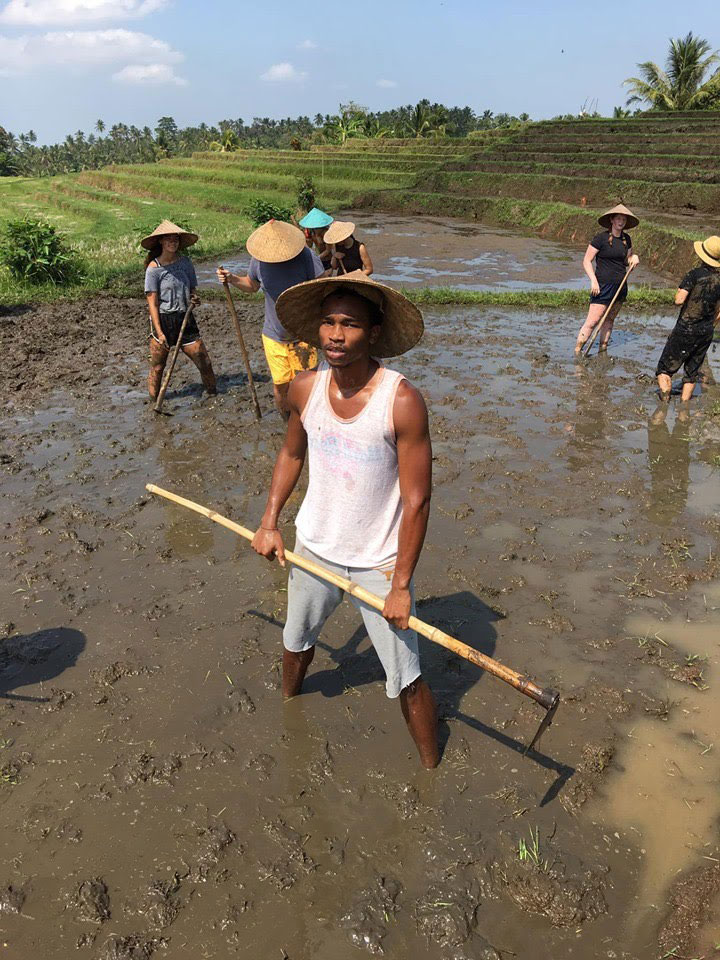
While in Indonesia, Lanier-Martin’s natural compassion for others inspired him to immerse himself in the culture—from working in rice fields to attending religious ceremonies. He considers the skill of forming connections that he developed at Gettysburg to be crucial in learning to cultivate greater care for society.
“I have gotten to broaden my experience at the College [thanks to my] faculty, curriculum, and peers,” Lanier-Martin said. “I would not have gotten the most from my experiences without respecting people enough to listen and engage with their own experiences.”
As a peace and justice studies minor, Lanier-Martin has worked to heighten his comprehension of social issues and the causes thereof throughout history. He seized the opportunity abroad to explore his role in understanding and addressing potentially destructive societal conventions.
“I have always been perplexed by the drastic difference in realities based on social constructions and realized … it is a reflection of our society,” he said. “The only way to change anything is to take responsibility [for those constructions and] assess how you could help alleviate social woes.”
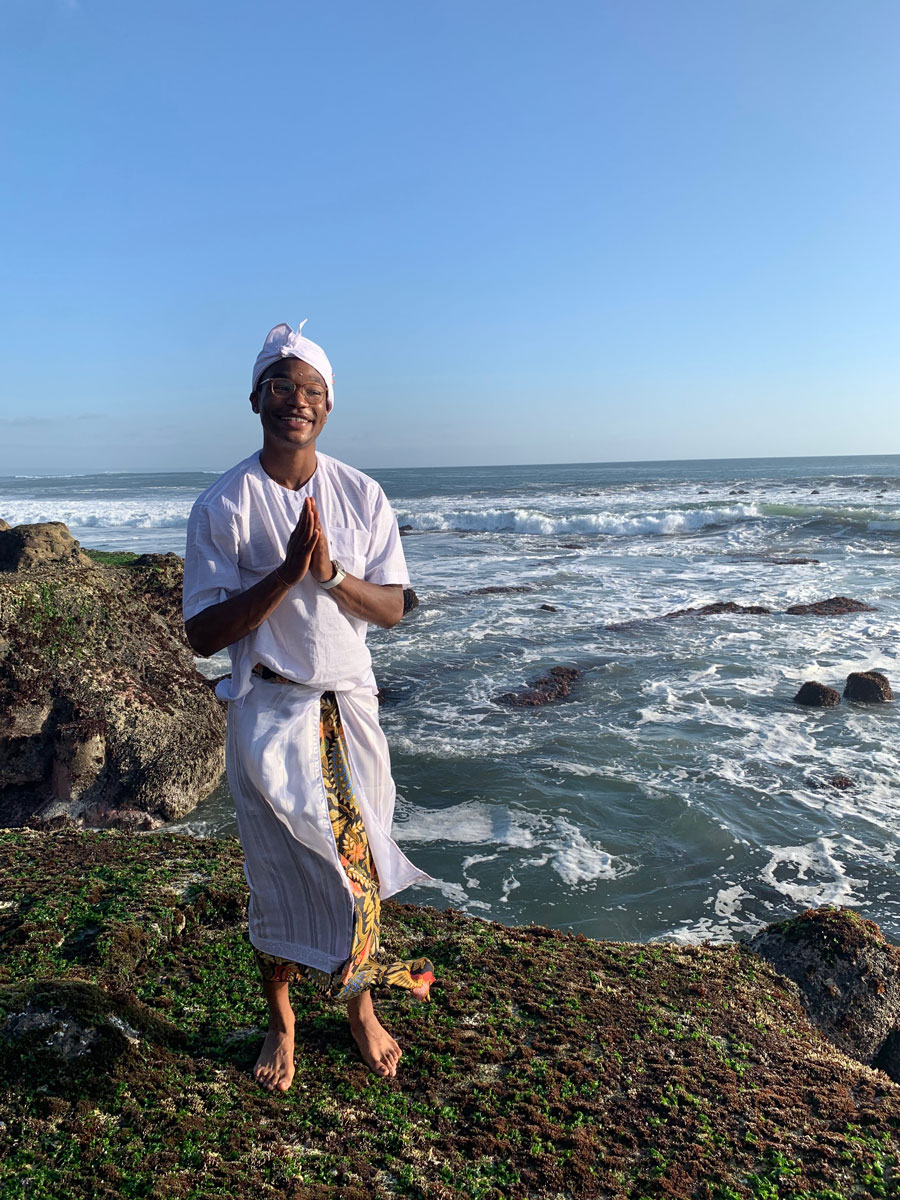
Lanier-Martin spent a month compiling interviews, secondary sources, and public observations for an independent study on “The Evolution of Bali and Tourism in Indonesia.” He also presented a study on poverty for an international symposium in October of 2019. Ultimately, he discovered that justice can be restored when guided by moral integrity.
“The main takeaway was that it appears money does not have an authority that governs it, and subsequently vulnerable groups are subject to systemic oppression,” he said. “It’s our responsibility to enact the morality we want to see in a civilized world.”
Not only does Lanier-Martin strive for the betterment of his society, he also pursues opportunities to improve his own skills. An English major, he left home at age 13 to attend the Milton Hershey School (Pa.) and later earn a college degree. Through projects like his symposium presentation, he challenges himself to consistently improve his communication skills, including writing and public speaking.
“I am constantly trying to make the best of the opportunities available to me,” Lanier-Martin said. “Every day, you are presented an opportunity to live, and I try to make do with my present because time and life are precious.”
As the former president of The Fellaship, a club at Gettysburg that fosters a network for men of color on campus, Lanier-Martin encouraged his peers’ personal development by leading acts of service, club events, and meetings. He also spends time guiding youth in Project Hope, an Adams County-based mentorship program.
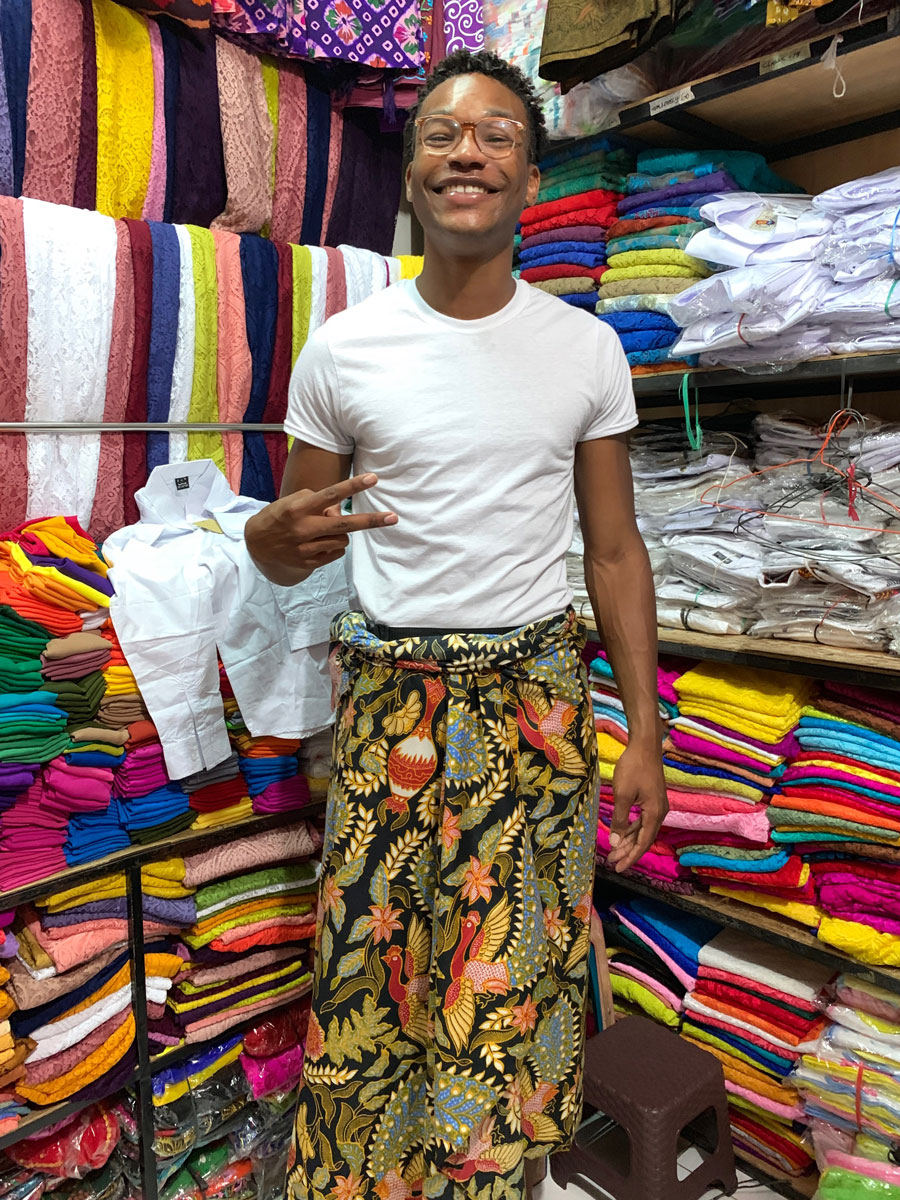
Lanier-Martin found that the liberal arts and sciences education at Gettysburg afforded him the opportunity to better communicate and empathize with others, as evidenced in his leadership.
“The natural thing for us is to compartmentalize and categorize one another, leading to the preconceptions and biases we hold,” he said. “At the end of the day, flexibility and adaptability is integral for growth and success.”
He also found that service programs like those offered by the Center for Public Service are beneficial to students who wish to make a difference in the community. He hopes to find ways to serve the society at large beyond Gettysburg.
“I aim to continue to be an example for both myself and others of being a lifelong learner, and [remain] committed to the moral progress of the human race,” Lanier-Martin said. “It is uncomfortable sometimes, but it is necessary to bridge the gap between those who have not had extensive experience with the ‘other,’ in whatever degree fits the situation.”
Expand your horizons with Gettysburg’s study abroad opportunities.
By Phoebe Doscher ’22
Photos courtesy of Churon Lanier-Martin ’20
Posted: 05/12/20
